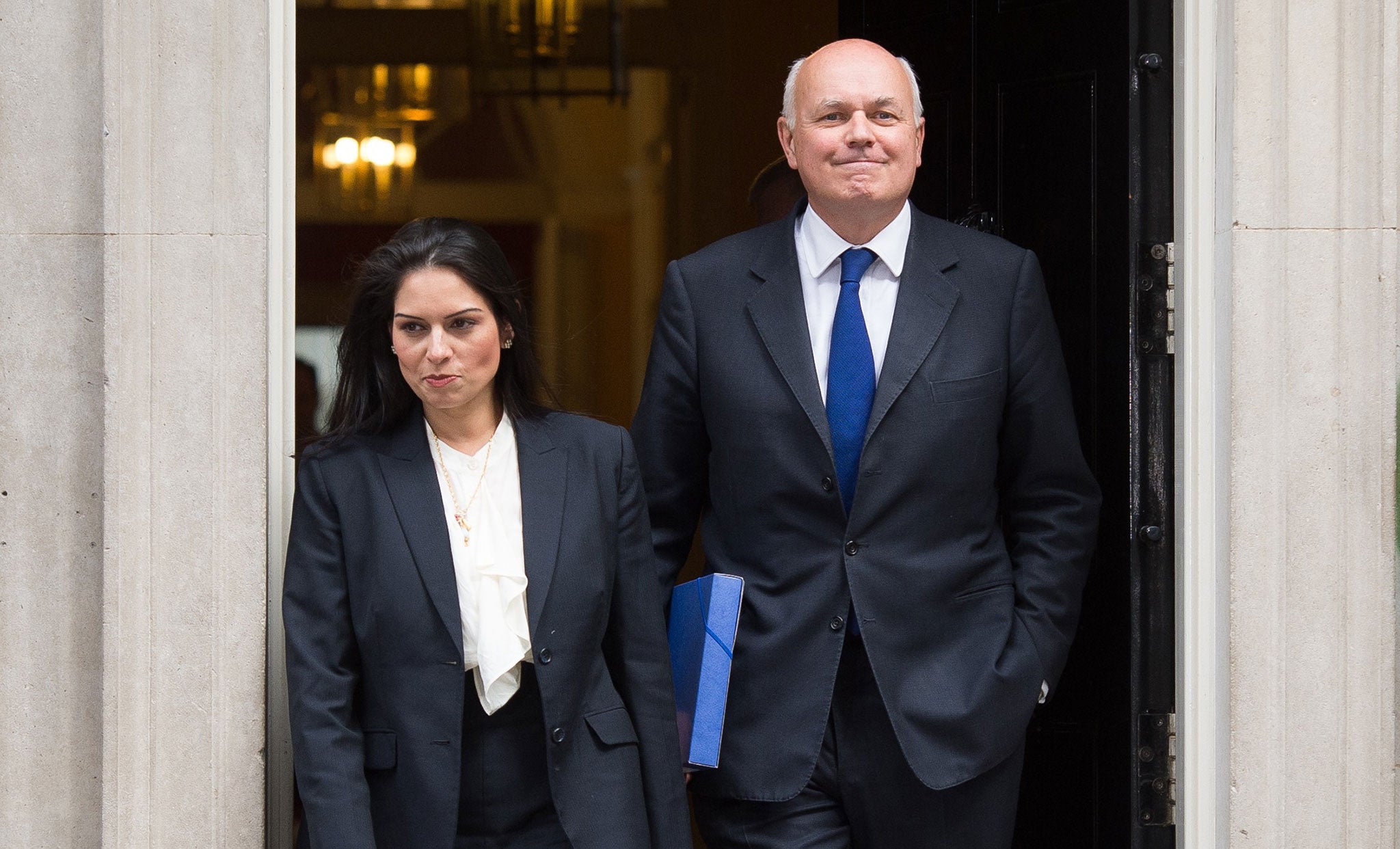Your support helps us to tell the story
From reproductive rights to climate change to Big Tech, The Independent is on the ground when the story is developing. Whether it's investigating the financials of Elon Musk's pro-Trump PAC or producing our latest documentary, 'The A Word', which shines a light on the American women fighting for reproductive rights, we know how important it is to parse out the facts from the messaging.
At such a critical moment in US history, we need reporters on the ground. Your donation allows us to keep sending journalists to speak to both sides of the story.
The Independent is trusted by Americans across the entire political spectrum. And unlike many other quality news outlets, we choose not to lock Americans out of our reporting and analysis with paywalls. We believe quality journalism should be available to everyone, paid for by those who can afford it.
Your support makes all the difference.There is no evidence linking soaring food bank use to the DWP’s strict regime of benefit sanctions, a Government minister has claimed.
Priti Patel, an employment minister at the Department for Work and Pensions, told MPs that she did not accept claims by researchers that abruptly stopping someone’s income could cause them to seek emergency food aid.
“We have looked at this issue extensively and we agree with this conclusion reached by the All-party Parliamentary Group into hunger that the reasons for food bank use are complex and overlapping,” she said.
“There is no robust evidence that directly links sanctions and food bank use.”
Ms Patel's claim caused MPs on the opposition benches in the House of Commons to issue audible gasps.
Tasmina Ahmed-Sheikh, an SNP MP, recounted the experience of one of her constituents, who was sanctioned for missing a jobcentre appointment while he was in hospital recovering from a heart attack.
“It is absolutely clear from all independent evidence that the sanctions regime is having a heart-breaking effect on people,” she argued.
But Ms Patel responded that she did “not at all accept anything the honourable lady has said” and argued that “food banks pay a vital role in welfare provision”.
The Trussell Trust, a charity which oversees a large number of food banks, told the Independent that the minister’s claims about sanctions were “simply not true”.
The Trust’s chairman urged the Government to review the evidence on the subject, citing a number of academic publications in his response to the minister.
“The claim that there is no evidence linking sanctions to foodbank use is simply not true,” Chris Mould said.
“Independent research from the University of Oxford published in April 2015 found that areas of the UK facing greater unemployment, sanctions and budget cuts have significantly greater rates of people seeking emergency food aid.
“Furthermore, joint research in ‘Emergency Use Only’ by the Trussell Trust, Church of England, Oxfam and Child Poverty Action Group, found that 19-28% of the foodbank users for whom data was collected had recently had household benefits stopped or reduced because of a sanction.
“Further research, particularly as further changes to the benefits regime are planned, is going to be critical to understanding the scale of the problem.
“We urge the Government to review the existing literature on the subject and meet with agencies and charities on the front line dealing with clients affected by benefit sanctions.”
In March of this year the Independent revealed that Work and Pensions Secretary Iain Duncan Smith has refused to meet with the Trust for over a year – but had actually held discussions with an American investment bank about tackling child poverty.
The Department for Work and Pensions says that a dramatic rise in food bank use is because job centres now point claimants in need to food banks.
However, only a small proportion of referrals to food banks actually come from job centres.

Join our commenting forum
Join thought-provoking conversations, follow other Independent readers and see their replies
Comments